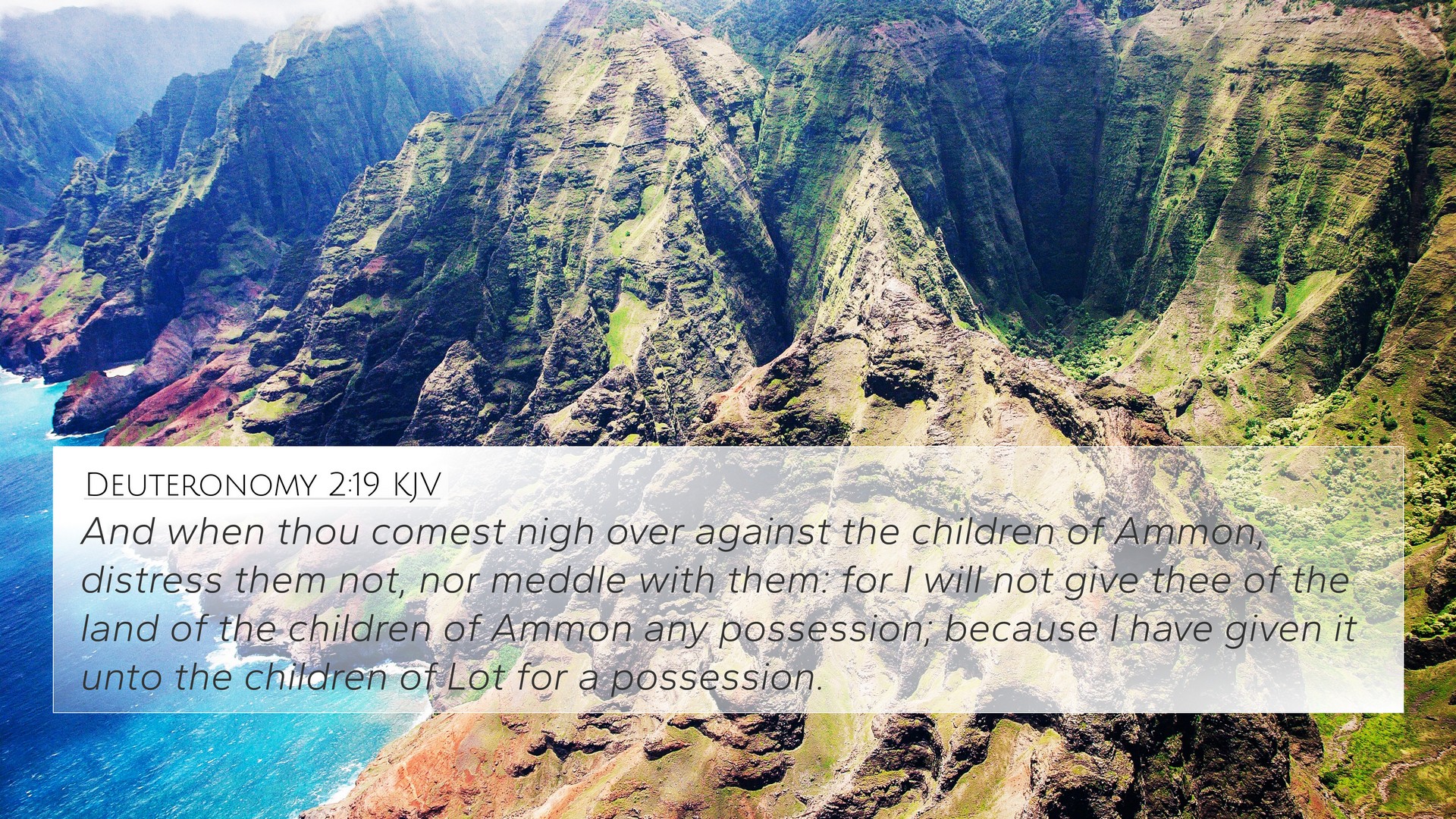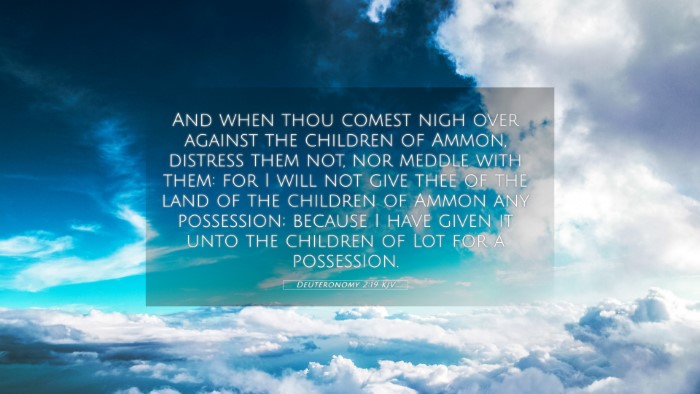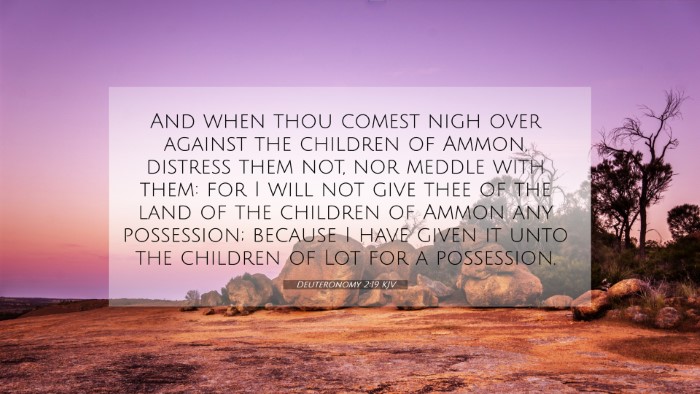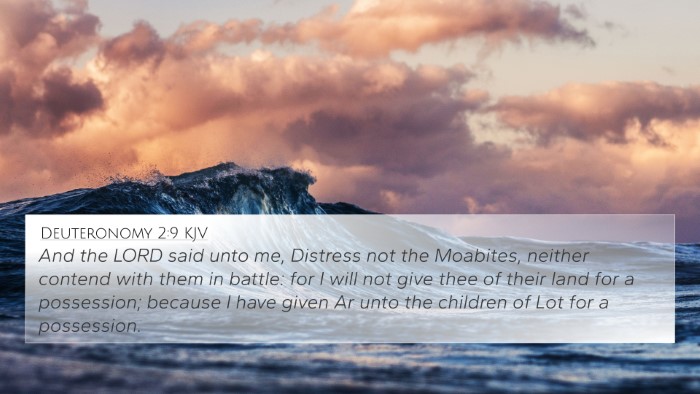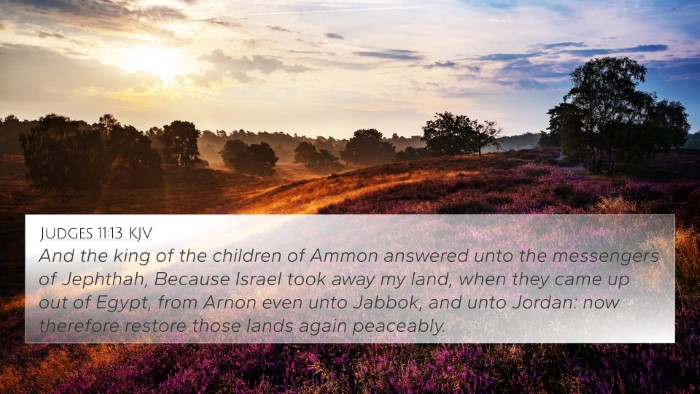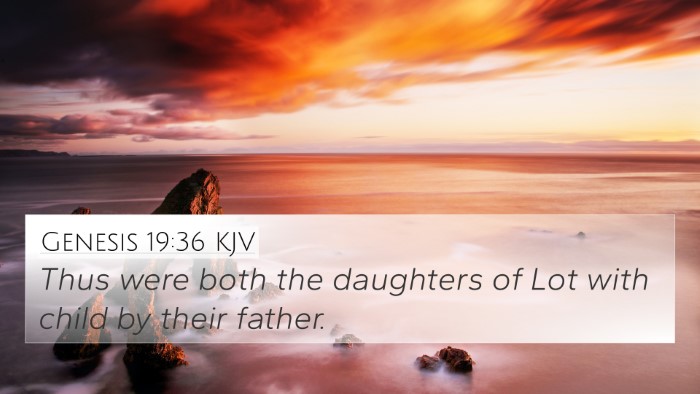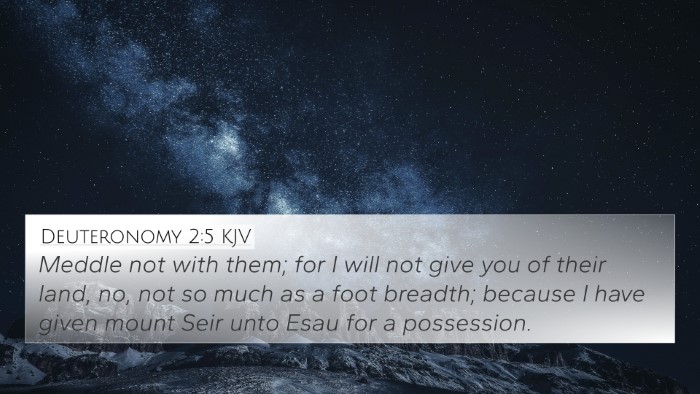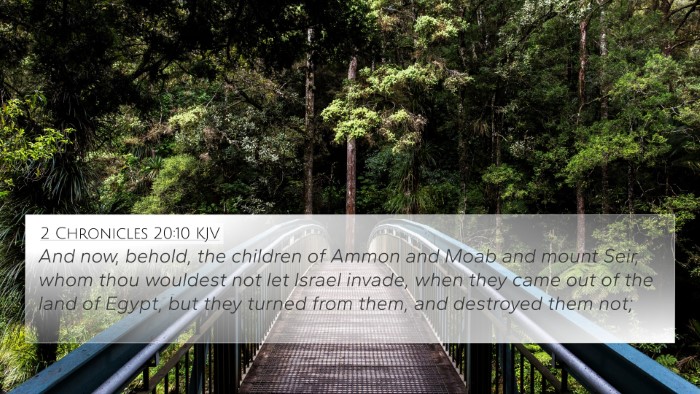Understanding Deuteronomy 2:19
Verse Text: "And when you come near over against the children of Ammon, distress them not, nor meddle with them: for I will not give you of the land of the children of Ammon any possession; because I have given it unto the children of Lot for a possession."
Verse Meaning and Interpretation
Deuteronomy 2:19 addresses the Israelites as they navigate their journey toward the promised land. This section is rich with implications about divine direction, the concept of inheritance, and the bounds set by God regarding territorial claims. Various commentaries shed light on its meaning:
-
Matthew Henry's Commentary:
Henry notes that God's instructions to the Israelites emphasize restraint and obedience. The Israelites are prohibited from waging war against the Ammonites because God has designated this land for the descendants of Lot. This demonstrates God's sovereign authority over nations and lands, underlining that certain territories are divinely assigned.
-
Albert Barnes' Notes:
Barnes emphasizes the historical relationship between Israel and Ammon. The Ammonites are descendants of Lot, and their land is viewed as a familial inheritance. God's refusal to allow the Israelites to take any of this land conveys a message of respecting divine order and the familial ties established by God, pointing towards the importance of familial relationships in biblical history.
-
Adam Clarke's Commentary:
Clarke highlights the instruction against aggression towards the Ammonites, showcasing the principle of respecting God's commands concerning other nations. This not only guides the Israelites on physical warfare but also reflects the moral undertones of their conduct as God's chosen people.
Key Themes
This verse encapsulates several important biblical themes:
- Divine Sovereignty: God controls the distribution of land and inheritance.
- Respect for Family Ties: Emphasizes the importance of respecting familial lineage.
- Guidance in Conduct: Instructions on how to treat neighboring nations reflect moral directions.
Related Bible Cross-References
This verse correlates with various other biblical texts to enhance understanding:
- Genesis 19:30-38: Details the origins of the Ammonites, showing their connection to Lot.
- Numbers 21:24-26: Discusses Israel’s interactions with the kingdoms in their path, reflecting God's rulings on land ownership.
- Deuteronomy 2:9: God's command concerning the Moabites is part of the overarching narrative on territorial laws.
- Deuteronomy 23:3-6: Outlines prohibitions against the Ammonites in the context of Israel's worship and community life.
- Joshua 12:2-3: Discusses the territorial boundaries set as the Israelites conquer Canaan.
- Isaiah 15-16: Prophetical texts about Moab and Ammon that tie back to their significance in biblical history.
- Romans 12:18: A New Testament reflection on living peaceably with all, echoing the sentiment of restraint in conflict.
Thematic Bible Verse Connections
Understanding Deuteronomy 2:19 within the broader biblical narrative reveals themes such as:
- The morality of war: How God prescribes the conduct of His people in relation to others.
- The significance of land and heritage: Understanding the importance of land in biblical covenantal promises.
- Covenantal faithfulness: The corresponding blessings of obeying God’s commands and respecting His orders in territorial matters.
Tools for Bible Cross-Referencing
To delve deeper into the themes of Deuteronomy 2:19 and its contextual significance, utilizing various tools and resources for Bible cross-referencing is beneficial:
- Bible Concordance: Use this tool to locate specific terms and themes within Scripture.
- Bible Cross-Reference Guide: Guides are helpful to visually connect verses that share similar themes or teachings.
- Cross-Reference Bible Study: Engage in group studies for shared insights on interconnected scripture.
- Bible Reference Resources: Leverage comprehensive resources that provide insights into verse connections.
Conclusion
Deuteronomy 2:19 serves as a significant directive from God to His people, emphasizing crucial lessons on sovereignty, family lineage, and moral conduct towards others. Utilizing cross-referencing methods further enriches the understanding of its implications and how it relates to the overall narrative of Scripture. Thus, connecting this verse with others provides a broader perspective on God's ongoing interaction with His chosen people and His will for all nations.
